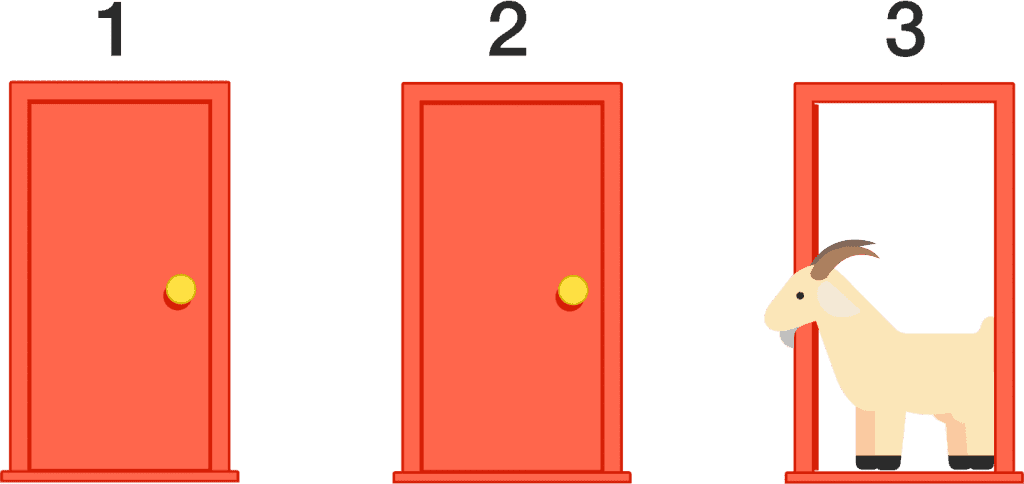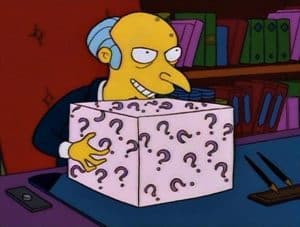In this entry «Monty Hall Problem Explained without Mathematics» Let's take a look at this wonderful statistical exercise and try to understand why most people get it wrong when answering, and how we can approach this idea to understand it without hardly any numbers or accounts.
On Wikipedia you can access the mathematical explanation of this problem.
He Monty Hall problem is a mathematical statistics problem that is usually really counter-intuitive, and whose name is usually always linked to an American television presenter called Monty Hall, because in their program one of the tests was the one we will see in this statistics exercise (although with doors instead of boxes):

Post content:
Monty Hall Problem – The Game
Premise
You have three boxes. One has a gift inside and the other two are empty. Choose one.

Dilemma
Let's say you pick box number one.
Now I open box number three for you so you can see that the prize was not there, and I give you the opportunity to change and choose box number two.
Would you change your choice?
Data
Most people I've asked this question decide to stick with their first choice., because if you change and it turns out that you had chosen the correct box you would feel very stupid, cheated.
However, box number two, which initially had only a 33.33% probability of being the one containing the gift, now has a 66.66%; twice as much as box one, which is the one you chose at the beginning. It sounds strange, doesn't it?

Monty Hall Problem – Explanation
I'm going to try to explain it in two different ways. that are explained with the same logic, without mathematical calculations necessary:
1st Explanation of the Monty Hall Problem:
Imagine that you have ten thousand boxes and you have to choose one. You choose box number ten, and you will hardly have been right, right?
Now I tell you that the gift can only be in box number ten, which you chose at the beginning, or in box five hundred and eighty-eight. All the others I assure you do not contain the prize. Would you change your choice?
Considering that I can't pick up the box with the prize, it's almost certain that the prize is in the one I'm not allowed to pick up, and not yours.
Well, in the same way, when you had three boxes, you were more likely to fail than to be right on your first choice.
2nd Explanation of the Monty Hall Problem:
By having three boxes and having to choose between one, you are more likely to choose the wrong box than the right one. So, assuming that you have chosen an empty box, if you choose to switch between one of the other two, you will have a 50% probability of getting it right, right?
Well, if I open one of those two boxes that you were going to choose between and you see that it is empty, the remaining box is the one that has the prize, with a probability of 100%.
If it happens that right in your first choice you have pointed to the box with the prize, then when you change, you will surely lose. But what can be seen here is that, statistically, in your first choice it is normal for you to choose an empty box.
And that is in the case that there are only three boxes, since the box that remains unopened has a probability of being the correct one equal to its initial probability plus the probability of all the boxes that have been shown to have no prize; So imagine if you have ten thousand boxes and then you are only left with two. The probability that the box you did not choose contains the prize is 99.999%.
Conclusion
If you liked this post you can leave a comment and visit the rest of Curiosities, I'm sure you will enjoy them!
